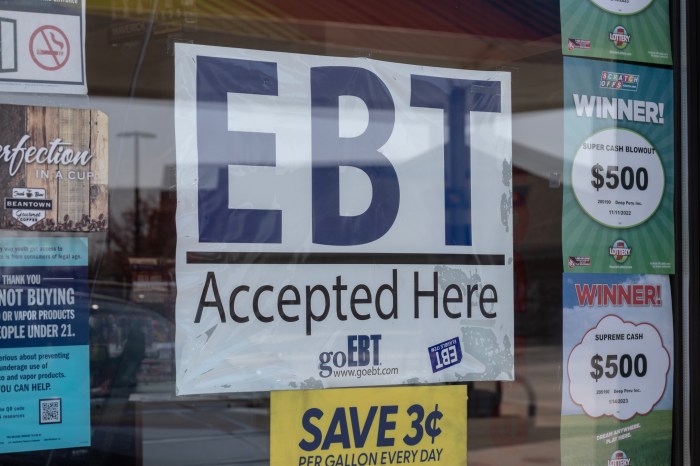With another Election Day just two months away, let us celebrate the passage last Election Day of what was an important and powerful addition to the New York State Constitution. It has been called the Green Amendment.
“Each person shall have a right to clean air and water, and a healthful environment,” the amendment declares. New York voters approved it last Election Day by more than a two-for-one margin. And it is now law in New York.
Its prime sponsor in the New York State Assembly was from Suffolk County, Steve Englebright of Setauket, chair of the Assembly’s Environmental Conservation Committee and an official from Suffolk long deeply committed to environmental causes.
“It is simple,” he argued in advocating for a Green Amendment. It would allow every New Yorker “to know that you can raise a family and pass on to the next generation a clean and healthful environment. This proposal is based on the premise that these rights are fundamental … and should be reflected in the state’s Constitution.”
Assemblyman Fred W. Thiele Jr., also from Suffolk, and also long a champion of environmental causes, was a leading Assembly sponsor. Thiele, an attorney from Sag Harbor, explained that “a Constitutional right to clean air and clean water and a healthful environment, it elevates environmental policy and initiatives.”
In the State Senate the prime sponsor was Robert Jackson of Washington Heights in Manhattan. He commented that “to add 15 words to the Constitution of our state, we are helping shape the future of New York” The Green Amendment would finally put in place safeguards to require the government to consider the environment and our relationship to the Earth in decision making,” he said. “If the government fails in that responsibility, New Yorkers will finally have the right to take legal action for a clean environment because it will be in the State Constitution.”
There was opposition. The Business Council of New York State asserted in a memorandum to members of the State Legislature that it “fails to see the benefit in providing a direct right of action under the State Constitution to remedy an environmental condition because there are numerous adequate remedies available under current state law.”
Challenging this position was Delaware River- keeper Maya K. van Rossum, key in the initiative for a Green Amendment in New York State and states through the U.S. Based in Pennsylvania, von Rossum also advocates making it an amendment to the U.S. Constitution, too.
She is the author of the 2017 book, “The Green Amendment, Securing Our Right to a Healthy Environment.”
She countered the position of the Business Council of New York by declaring that passage of the Green Amendment in New York State “would be as beneficial for the businesses of New York as it would be for the people.” It would not “pit people and the environment against business; it joins them together in a common cause that benefits everyone.”
A Green Amendment, she said, gives people a right comparable to Constitutional rights such as freedom of speech, religion, assembly and the press receive.
Getting an amendment to the New York Constitution adopted isn’t easy. Passage in two sessions of the State Assembly and State Senate and then approval by the voters was necessary.
Leaders of 70 organizations were involved in advocating for the Green Amendment in New York. A joint statement they issued noted that while the state’s Constitution includes a Conservation Article that says “the policy of the state shall be to conserve and protect its natural resources,” it is “limited in scope and only recognizes environmental protections as important public policy, not as a fundamental right.”
Mario Cilento, president of the New York State AFL-CIO, said the “victory means all New Yorkers will now be guaranteed the right to a healthy and clean environment. It will also lead to good union jobs as a result of investments in clean drinking water projects, improvements to wastewater and stormwater infrastructure, and the development of new energy technologies.”
Actor Mark Ruffalo, who starred in the 2019 film “Dark Waters,” based on the real-life legal battle against DuPont over its massive dumping of a toxic chemical that contaminated drinking water in West Virginia, wrote the foreword to Rossum’s book. He compared it to “Silent Spring,” the 1962 book by Rachel Carson that combined with her efforts, he noted, “are often credited with sparking the birth of the modern environmental movement.”
Elections have consequences. And the passage of the Green Amendment will have major consequences – as will decisions voters will make in the coming election on Nov. 8. Go vote!




























